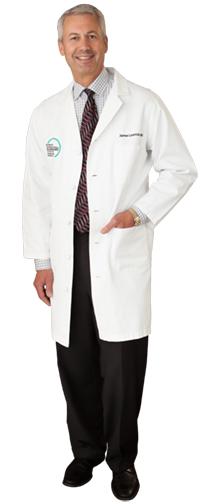James E. Lesnick, MD, Neurosurgery; Past Senior Vice President of Riverside Medical Group and Riverside Business & Venture Development (retired)
 In 1982, professional hospice services didn’t exist in Hampton Roads. That year, Hospice Support Care of Williamsburg began to change the lives of terminal patients and their families, ultimately building a unique residential program and ushering a new type of care into the region.
In 1982, professional hospice services didn’t exist in Hampton Roads. That year, Hospice Support Care of Williamsburg began to change the lives of terminal patients and their families, ultimately building a unique residential program and ushering a new type of care into the region.
As a neurosurgeon, Dr. James Lesnick saw firsthand how hospice eased the burden on his patients and their loved ones. Now retired from practice and his prominent leadership and business roles at Riverside, Dr. Lesnick has been a member of Hospice’s Board of Directors for six years and will serve as President for the next two.
“This program has always been about a community rallying together to take care of its own families,” he says. “We are blessed to have it, so it’s an honor to be part of it and help continue its history.”
Hospice House & Support Care of Williamsburg, or HHSCW, is a nonprofit social model hospice, picking up where medical hospice leaves off to cover service gaps. The overarching goal is to keep people out of hospitals during their final days, and to let family caregivers simply be loved ones again.
“With expert help, a wife can just be a wife in those last precious days – not the person struggling to provide care,” he says. “A husband can be a husband, a child can be a child, and so forth. That is immensely important and comforting.”
The four-bedroom Hospice House in James City County, which opened in 2002, provides 24-hour care in a homelike setting. Surrounded by gardens and woods, it features a kitchen, family room, sunroom and fireplace.
HHSCW also offers in-home respite care, loaned medical equipment, bereavement support groups, and online and print resources on the dying process and responsibilities such as planning for funerals and tending to legal and financial matters. Programs are free to residents of Williamsburg, James City County and upper York County, with occasional reach outside those areas if possible.
More than 700 people a year participate in HHSCW’s educational and support groups, which include general grief management sessions and targeted options such as surviving suicide loss; coping with the death of a child, grandchild, sibling, spouse or parent; and navigating cancer care. HHSCW also organizes memorial ceremonies and hosts a walking club and social group.
HHSCW is constantly forming new community partnerships. One more recent program, “Final Gifts Vigil”, aims to ensure that no person ever dies alone at Sentara Williamsburg Regional Medical Center. Instead, trained volunteers sit with dying patients who don’t have loved ones nearby, a model that HHSCW would like to expand to other hospitals.
“One of the worst things for nurses is knowing someone has passed when they’re not in the room,” Dr. Lesnick notes. “This is a great relief for them, and it’s simply the right thing to do.”
Dr. Lesnick is a longtime leader and innovator in the local medical community. After moving to Williamsburg in 1986, he opened a neurosurgery practice there in 1991 and helped bring the Chesapeake Regional, Riverside and University of Virginia Radiosurgery Center to Newport News. He led Riverside Medical Group for eight years and spent another three at the helm of Riverside Business & Venture Development, presiding over periods of rapid growth. He retired this past January.
Financial donations and volunteer efforts are crucial to HHSCW; each year, more than 300 volunteers provide about 15,000 hours of time. As a Board member, Dr. Lesnick has served as Secretary-Treasurer and Chair of the Finance Committee and is looking forward to his term as President.
 “Families don’t have to feel alone and overwhelmed in these difficult days,” he says. “We have so many resources here, and we want to reach as many people as possible.”
“Families don’t have to feel alone and overwhelmed in these difficult days,” he says. “We have so many resources here, and we want to reach as many people as possible.”
To learn more, visit williamsburghospice.org, call (757) 253-1220 or send email to info@williamsburghospice.org.

